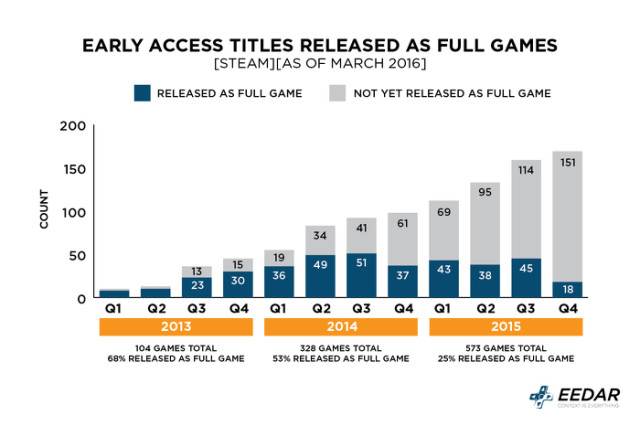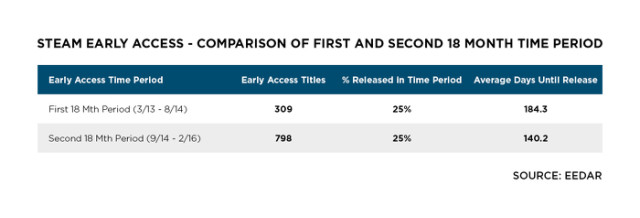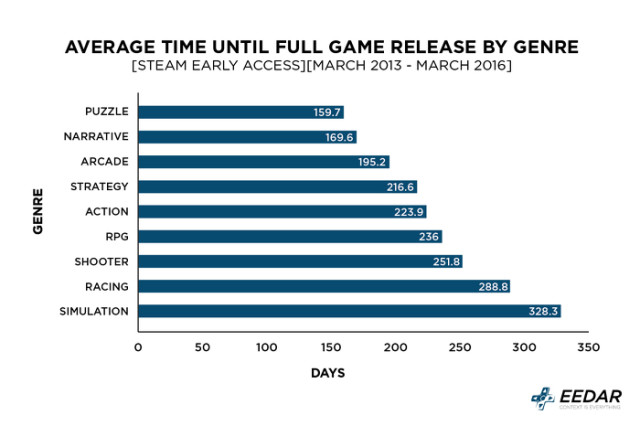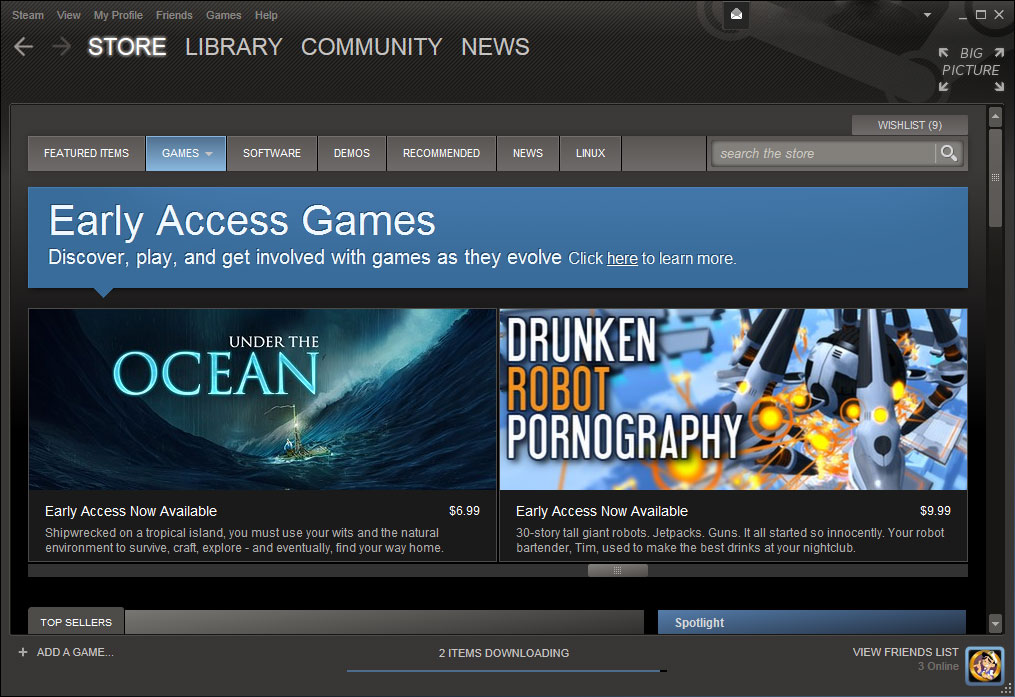Three years ago, Steam introduced the Early Access program onto its platform, which lets developers sell early builds of games in an effort to get the community more involved and gain funding. This enabled users to provide feedback towards the game’s final release while building up hype for the final game.
But how effective has the program been? Patrick Walker, head of insights at EEDAR, recently wrote (via GamesIndustry International) on findings that indicate how more games are finding success through Early Access.
Although Early Access has exploded in popularity, only 25 percent of titles are being released as full games. However, the findings also show that the program has significantly more (over 5 times as many) games available than when it was first introduced.

Although momentum slowed around the fourth quarter last year, about 573 games entered Early Access in 2015. As of March 2016, over 1,100 games in total will have been included in the program, with almost 70 percent of all Early Access games reaching completion.
The number of average days until release has dwindled during the course of the program, indicating that developers are taking community feedback and applying it much more quickly to the final product. At the same time, the rapidly increasing number of games take advantage of Early Access, along with a consistent 25 percent full-release rate, is a strong sign of stability.

That doesn’t mean every developer is rushing to release, though. Some are taking their time in applying these changes, especially if it’s a deep experience, such as a role-playing game or a racing simulation. In fact, some games can take nearly a whole year for changes to be applied and a full release to be scheduled, which is probably one of the biggest hurdles when it comes to purchasing a game through the Early Access program.

Regardless, the program has welcomed up-and-coming developments with open arms, while making a plethora of new games available through the Steam service. “Despite the long time these titles are spending in development, the program continues to grow rapidly,” writes Patrick Walker. “The program is cementing itself as a viable path for PC releases. It will be interesting to see how the platform continues to evolve, especially if the popularity continues to increase and discoverability becomes more and more of an issue.”

